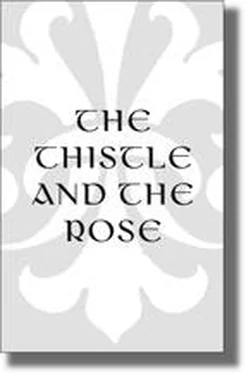Jean Plaidy - To Hold the Crown - The Story of King Henry VII and Elizabeth of York
Здесь есть возможность читать онлайн «Jean Plaidy - To Hold the Crown - The Story of King Henry VII and Elizabeth of York» весь текст электронной книги совершенно бесплатно (целиком полную версию без сокращений). В некоторых случаях можно слушать аудио, скачать через торрент в формате fb2 и присутствует краткое содержание. Жанр: Старинная литература, на русском языке. Описание произведения, (предисловие) а так же отзывы посетителей доступны на портале библиотеки ЛибКат.
- Название:To Hold the Crown: The Story of King Henry VII and Elizabeth of York
- Автор:
- Жанр:
- Год:неизвестен
- ISBN:нет данных
- Рейтинг книги:5 / 5. Голосов: 1
-
Избранное:Добавить в избранное
- Отзывы:
-
Ваша оценка:
- 100
- 1
- 2
- 3
- 4
- 5
To Hold the Crown: The Story of King Henry VII and Elizabeth of York: краткое содержание, описание и аннотация
Предлагаем к чтению аннотацию, описание, краткое содержание или предисловие (зависит от того, что написал сам автор книги «To Hold the Crown: The Story of King Henry VII and Elizabeth of York»). Если вы не нашли необходимую информацию о книге — напишите в комментариях, мы постараемся отыскать её.
To Hold the Crown: The Story of King Henry VII and Elizabeth of York — читать онлайн бесплатно полную книгу (весь текст) целиком
Ниже представлен текст книги, разбитый по страницам. Система сохранения места последней прочитанной страницы, позволяет с удобством читать онлайн бесплатно книгу «To Hold the Crown: The Story of King Henry VII and Elizabeth of York», без необходимости каждый раз заново искать на чём Вы остановились. Поставьте закладку, и сможете в любой момент перейти на страницу, на которой закончили чтение.
Интервал:
Закладка:
Now he had a young girl, Germaine de Foix, and this fact brought anxious furrows to the brow of the King of England for Germaine de Foix was a niece of Louis the Twelfth of France, which must mean bonds of friendship between Spain and Henry’s old enemy, France.
Henry had not said definitely that there would be no marriage with the Prince of Wales. He did not want to do that. In fact to have abandoned her altogether would have meant a return of her dowry and he was not prepared to let that go out of the country. But she knew that he was sending out feelers for a possible bride for the Prince of Wales. She knew that Marguerite of Angoulême had been suggested for young Henry and her mother Louise of Savoy for the elder.
She fancied that rejection from Angoulême had been the reason for these propositions coming to nothing, and she had heard that Louise had seen a picture of the King and found it repulsive, as no doubt she did his parsimonious habits. The real reason perhaps was that she was so wrapped up in her son François, the young Duke whom she called her Caesar, that she could not bear to be parted from him; and the same applied to Marguerite.
In any case the King was still seeking a bride and there had been no further suggestions for the Prince of Wales.
Just before Christmas she begged an audience with the King and after a while this was granted.
She was amazed by his frail looks. He was thin and there was a yellowish tinge to his skin, but his eyes were sharp and shrewdlooking as ever.
“My lord,” she said, “I cannot go on as I am. I have had no new clothes for two years; my servants are not paid. I must be able to live with dignity.”
“Have you applied to your father?” he asked.
“My father says I should apply to you.”
He lifted his shoulders. “You are his daughter.”
“I am yours too. I was Arthur’s wife.”
“That was scarcely a marriage, dear lady. Your father does not behave in a seemly fashion I hear.”
She began to feel hysterical. She must have help from somewhere. She could not go on in this way. Her apartments were cold and there was no means of heating them.
She told him this; her voice was raised and she was near to tears.
The King looked shocked.
“Pray calm yourself, my lady,” he said. “I think that you forget what is due from us both.”
She had clenched her fists together, “I am desperate . . . desperate. Either help me or send me to my father.”
The King said: “For the moment you should go back to your apartments. You are overwrought. I will do something to relieve your situation.”
What he had done was to invite her to come to Court for Christmas. This had disconcerted her. How could she mingle with the fine ladies of the Court in her threadbare gowns? Yet how could she spend the money which such a visit would necessarily require?
But because it was the King’s command that she should go to Court she must do so, and when she was installed in a small apartment there one of the King’s ambassadors came to her. He came, he said, on the command of the King to discuss her difficulties. She should rejoice for the King had given the matter his consideration.
She was tremendously relieved . . . but only for a few moments. When she heard the King’s solution, she was overcome with dismay.
“My lady, the King realizes that the upkeep of Durham House is beyond your means. Therefore he offers you a home here at Court. He is dismissing the members of your household whom you will no longer need. He says it is small wonder that you cannot pay your servants. The answer is that you have far too many. He is dismissing all but five of your ladies, and he is leaving you your Master of Hall, your treasurer and your physician. Then you will have your apartments here at Court. Thus you will be in a position to live in accordance with your means.”
She was dumbfounded. He had helped her by taking away most of those who were her friends.
She was so distraught that she sent at once for her Confessor. She wanted to pray with him, to ask him to help her to bear this fresh burden, which had been put upon her by a cynical king.
He could not be found and when she sent for her physician he told her that her Spanish Confessor was one of those who had been dismissed.
So here she was at Court—even more wretched than she had been at Durham House. Her expenses might have decreased but her misery had intensified.
There was only one ray of hope at that time. On occasions she saw the Prince of Wales. He was always aware of her, she knew. Sometimes their eyes would meet and in his would be a smile, which was almost conspiratorial.
What did that mean? she wondered.
She looked for him on every occasion. She felt happier when he was there.
There was only one way she could escape from his intolerable situation. That would be through marriage with the Prince of Wales.

The King was by no means a happy man. He was still unmarried and he had one son only. True, Henry was growing into splendid manhood. He was already taller than his father, he was outstandingly handsome and with his light auburn hair and fair skin he was admired wherever he went. He took great care always to be dressed to the best advantage. He liked to show off his well-shaped legs and the sumptuous velvets and brocades of his garments were the talk of the Court.
All very well, thought the King, but I hope the boy is not going to be extravagant.
Certainly that could be curbed while the King lived but as Henry said to Dudley and Empson, it would be intolerable if the Prince believed that when he came to the throne he could plunge into that storehouse of carefully built-up treasure and squander it.
Everyone made excuses for him. He was young yet. He had great charm and good looks; he was admired by the people. When he grew older he would realize his responsibilities.
But would he?
The King watched his son closely, curbed his exuberance, keeping him at his side. He was determined that the Prince should not yet be allowed to set up a household at Ludlow but remain at the King’s Court.
The rift with Ferdinand was growing. Henry was in fact seeking friendship with Philip, Juana’s husband, who since the death of Queen Isabella had become virtually ruler of Castile. (Juana was the Queen, but women did not count, certainly not one who was half mad and at the same time besottedly in love with her husband so that he could do anything he would with her.) When Philip’s father Maximilian died Philip would be the most powerful man in Europe. He was therefore a man to be cultivated and the deeper the rift between Henry and Ferdinand the more Henry would need Philip’s friendship to stand against the French. Moreover Ferdinand’s marriage with the niece of the King of France had made this more important than ever.
Henry’s fury with Ferdinand was increased when English merchants trading in Castile were refused the privileges they had enjoyed for some time under Isabella’s rule and were unable to do business. Consequently they returned with their cargo of cloth and did not bring back the wine and oil the country needed. Ferdinand swore that this was no fault of his. It had been his government who had refused the English merchants permission to do business. He had done his best to persuade them to allow the trade to proceed as before but they had refused. The English merchants had come to Richmond to complain to the King and they were in a very angry mood. Henry hated to see business deals frustrated; he had great difficulty in placating the merchants and although he was not to blame, people had looked to him to make the country prosperous and if he failed to do so he would be the one to answer for the failure.
Читать дальшеИнтервал:
Закладка:
Похожие книги на «To Hold the Crown: The Story of King Henry VII and Elizabeth of York»
Представляем Вашему вниманию похожие книги на «To Hold the Crown: The Story of King Henry VII and Elizabeth of York» списком для выбора. Мы отобрали схожую по названию и смыслу литературу в надежде предоставить читателям больше вариантов отыскать новые, интересные, ещё непрочитанные произведения.
Обсуждение, отзывы о книге «To Hold the Crown: The Story of King Henry VII and Elizabeth of York» и просто собственные мнения читателей. Оставьте ваши комментарии, напишите, что Вы думаете о произведении, его смысле или главных героях. Укажите что конкретно понравилось, а что нет, и почему Вы так считаете.












